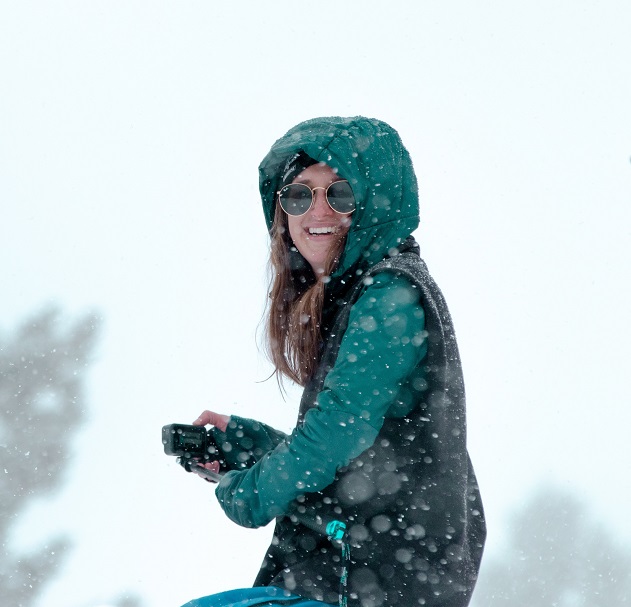Why buy polarised sunglasses?
With snow falling in the South Island and the ski season underway, it’s time to make sure you’ve got a pair of polarised sunglasses for skiing and snowboarding to protect your eyes from the sun’s harmful rays before you hit the slopes this winter.
 Eye protection from sun and glare while on the snow is crucial. Without proper glasses, it can only take a few seconds to feel the pain and strain when eyes are exposed to the bright light reflected off snow and ice.
Eye protection from sun and glare while on the snow is crucial. Without proper glasses, it can only take a few seconds to feel the pain and strain when eyes are exposed to the bright light reflected off snow and ice.
We’re exposed to UV and scattered blue light whenever we go outside, but at high altitude there is less atmosphere to filter UV rays and the sun’s reflection off the snow is much brighter; UV exposure is nearly doubled because snow reflects almost 80% of the UV radiation.
Without the proper protection, these harmful rays can cause both temporary damage and long-term issues, such as macular degeneration, cataracts, skin cancer on the eyelids and growths, or pterygium, on the whites of the eyes.
So what are some of the things you should consider when looking for the proper protective eyewear?
By simply wearing polarised sunglasses, you can protect your eyes and prevent vision strain.
Polarised sunglasses prevent eyestrain by blocking the glare from snow and ice, instead of merely dimming your field of vision as standard sunglasses do.
Normal sunglasses mean squinting to make glare more bearable, which can cause headaches and muscle fatigue around the face. Polarised lenses absorb glare and prevent fatigue by allowing your eyes to relax; no more squinting, watering eyes and headaches.
Why polarised sunglasses are effective
When light bounces off snow, it becomes polarised, meaning it travels in a more uniform direction rather than being scattered all over the place as it normally is. This horizontal polarisation creates glare which can be very damaging for your eyes, and this is what polarised lenses target.
Polarised lenses are laminated with a filter that blocks out scattered, glary light off reflected surfaces, allowing only vertically directed light to pass through. Since the horizontally angled light is blocked, glare is virtually eliminated.
Look for the label
 The best place to start looking for a quality pair of sunglasses is with your optometrist. Just because sunglasses lenses are dark, doesn’t mean they’re providing good UV protection. That’s why at John O’Connor Optometrists we recommend sunglass brands that clearly state the eye protection factor (EPF) or levels of protection they deliver and tints that provide 100% UVA/UVB protection.
The best place to start looking for a quality pair of sunglasses is with your optometrist. Just because sunglasses lenses are dark, doesn’t mean they’re providing good UV protection. That’s why at John O’Connor Optometrists we recommend sunglass brands that clearly state the eye protection factor (EPF) or levels of protection they deliver and tints that provide 100% UVA/UVB protection.
Polarised lenses contain a filter that blocks out scattered, glary light and how effective that filter is depends on how the lenses have been made and their quality. In lesser-quality, thinner lenses the polarisation is usually just a layer on the front that can be scratched off. The lenses can also warp a little, which is not good for optical comfort. In quality sunglasses, the polarisation is embedded into a layer within the lens with other layers on top, such as anti-reflective coatings and tints to keep the polarisation protected.
Polarised sunglasses make a difference
At John O’Connor Optometrists we can help you with eye protection in winter and with polarised sunglasses for skiing. Our Bill Bass polarised sunglasses start from $189.
If you wear prescription glasses or contact lenses, we can customise a pair of sunglasses to suit your eyes. Prescription polarised sunglasses using HOYA’s NuPolar lenses provide the ultimate glare protection. Our tinted polarised prescription sunglasses start from $488. Specialty eyewear exists for all winter sports and activities. Talk to us if you have any questions about UV exposure or any specialty eyewear you need to live an active, safe winter lifestyle!
UV (or ultraviolet) rays don’t take a break in the winter. Sunglasses should be worn whenever you are outside, even on an overcast winter’s day, but polarised sunglasses for skiing snowboarding, snowmobiling, sledding or just walking or frolicking in the snow are strongly recommended. If you’d like to protect your eyes in winter, give us a call and we’ll find the polarised lenses that are right for you.
Call our Newmarket Optometrists on 09 522 1283 or Henderson Optometrists on 09 836 1731 or send us an email via our contact page. We’d be happy to discuss all our eye-saving options with you.

